
 The SFFaudio Podcast #198 – Jesse, Tamahome, Jenny, and Professor Eric S. Rabkin discuss The Martian Chronicles by Ray Bradbury.
The SFFaudio Podcast #198 – Jesse, Tamahome, Jenny, and Professor Eric S. Rabkin discuss The Martian Chronicles by Ray Bradbury.
Talked about on today’s show:
Rock Hudson, The Martian Chronicles (TV adaption), Eric’s Coursera course (Fantasy and Science Fiction: The Human Mind, Our Modern World), The Million Year Picnic, I, Mars, The Moon Be Still As Bright, Usher II, the hot dog stand on Mars, fix-up, The Long Years (a robot family), Night Call Collect, There Will Come Soft Rains, a book of poems, novels of recurring characters, “composite novels”, “the culminating image of the whole book”, Cortez burning his ships, “were definitely going to need the daughters” (if the daughters are willing), Joanna Russ, Picnic On Paradise, The Million Year Picnic, “tamed nature”, the publisher’s motivation, Walter Bradbury, the market change (with Ballantine Books), “Mammon rules again”, the table of contents, Way In The Middle Of The Air, a more Edenic ending, 1984, North Korea, Earth Abides, the Golden Gate Bridge, getting a sense of the author, H.P. Lovecraft, colour, repetition, word choice, Spender, The Moon Be Still As Bright, Captain Wilder, the instinct to be cruel, the instinct to minimize the horror, the instinct to shoot the tomb robbers, feeling the emotion he’s trying to give us, the physics, nostalgic, seeing it from all sides, Farewell Summer, Bradbury’s gut reactions, The Martian Chronicles as a fairy tale, Isaac Asimov’s reaction, Fantasies set in space, Usher II and censorship, “the Poe machines”, the colour of Mars’ sky (blue and pink), the Martian canals, The Green Morning, Johnny Appleseed, the epigraph, “…space travel has again made children of us all.”, Christopher Columbus, the Chicken Pox plague, Another America, telepathy, the noble savage, a symbolic America, The Pedestrian, Bradbury was a strange guy, Fahrenheit 451, Edgar Rice Burroughs, the Martian high culture, the second expedition, “look up in space, we could go to the Moon!”, dinosaurs!, Mars Is Heaven, Science Fiction is supposed to have knowledge in it, imagery (sight, light, and fire), the brass band, Columbia, The Gem Of The Ocean, music, Humans are technological, Martians are emotional, the window, Beautiful Ohio, music dominates (not intellectual knowledge), Genevieve Sweet Genevieve, “fully lyrical”, the fire lay in the bed and stood in the window, the dog symbolizes the entire loss of the human race, the long monologues, getting it without filtering it, The Musicians, Rocket Summer, “it made climates”, the silences, the music as a symbol for American culture, the killing spree, The Off Season parallels with the second expedition, an inversion, Bradbury has it every way, Emma Lazarus, The New Colossus, Sam Parkhill, an epitome of perverted American ideals, Bradbury loves hot dogs, Dark Carnival, Something Wicked This Way Comes, mournful Mars, America by Ray Bradbury, the Wikipedia entry for The Martian Chronicles, The Taxpayer, the urge to improve, alas, the silhouettes on the house, Chernobyl vs Hiroshima, a grim meme, what gives this book it’s staying power?, Nightfall by Isaac Asimov, L’Anse aux Meadows and Roanoke, maybe it’s circular, “we’re the Martians now and we will be again”, Night Meeting, Stephen Hoye narrated Blackstone Audio, Bradbury’s reading, Bradbury’s first flight, Harlan Ellison, wasting time on the internet, Ylla, The Ray Bradbury Theater, Mardi by Herman Melville, making this book cohere, what part doesn’t fit?, reading it as short stories, “it’s an American book”, robots, decommissioning is murder, Ray Bradbury and Philip K. Dick had a shared contempt for litterers, crassness, The Electric Ant, Do Androids Dream Of Electric Sheep?, I Sing The Body Electric, Walt Whitman, “it’s the music!”, there’s no switch, gingerbread and tea, Helen O’Loy by Lester Del Rey, are there stories not included in The Martian Chronicles that should have been?, Way In The Middle Of The Air, The Other Foot, different editions of The Martian Chronicles, The Illustrated Man, The Fire Balloons, Stranger In A Strange Land, Grouch Marx (Lydia the Tattooed Lady), The Penal Colony by Franz Kafka, The Veldt, The City, Rod Steiger, Dandelion Wine, The Canterbury Tales by Geoffrey Chaucer.
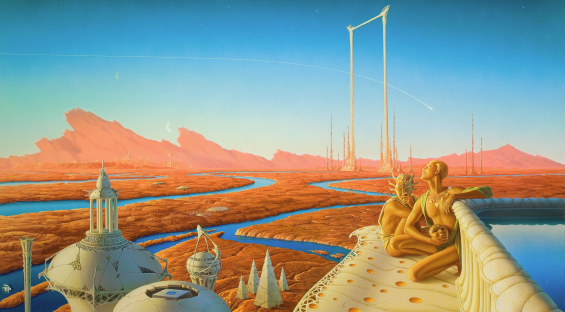
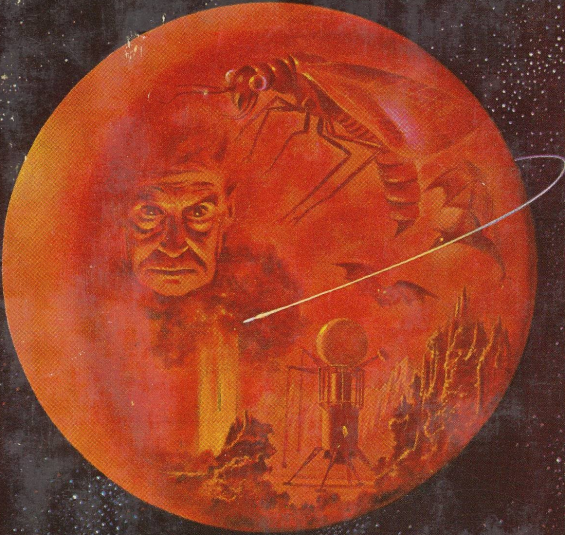
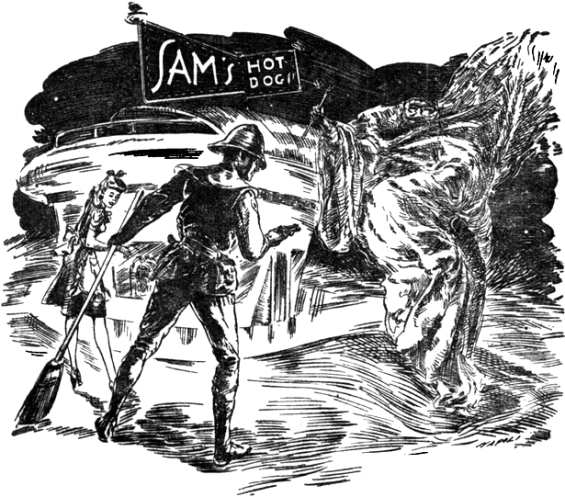
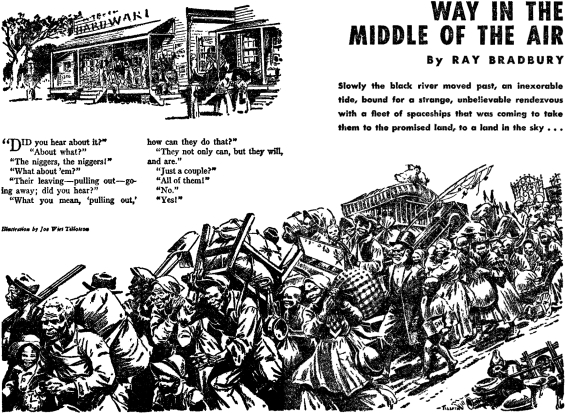
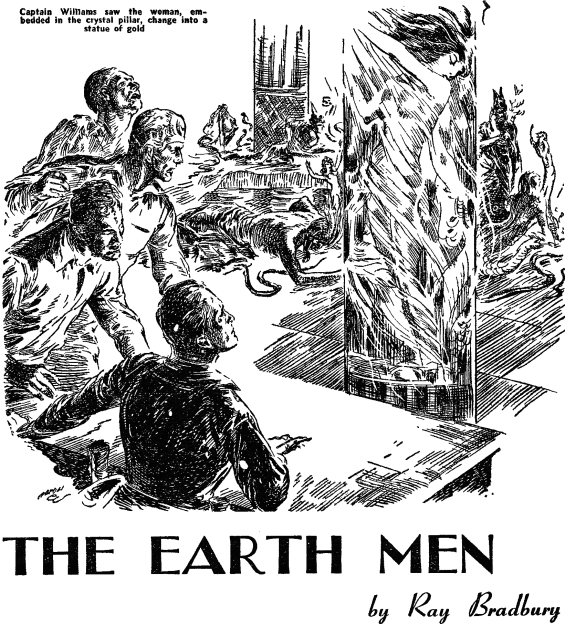
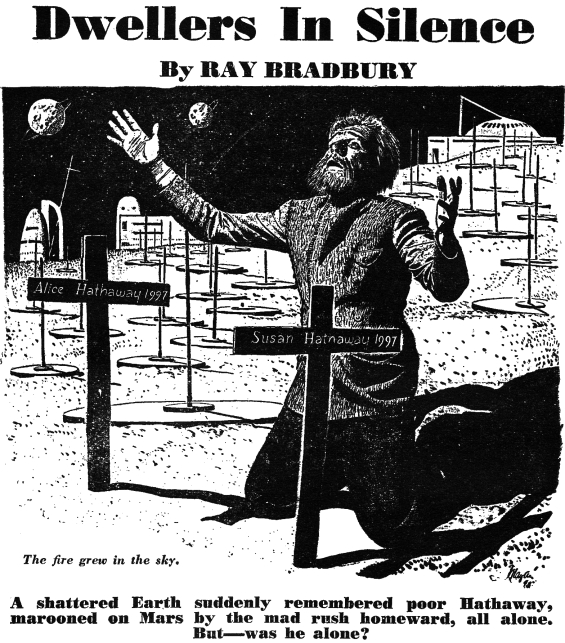
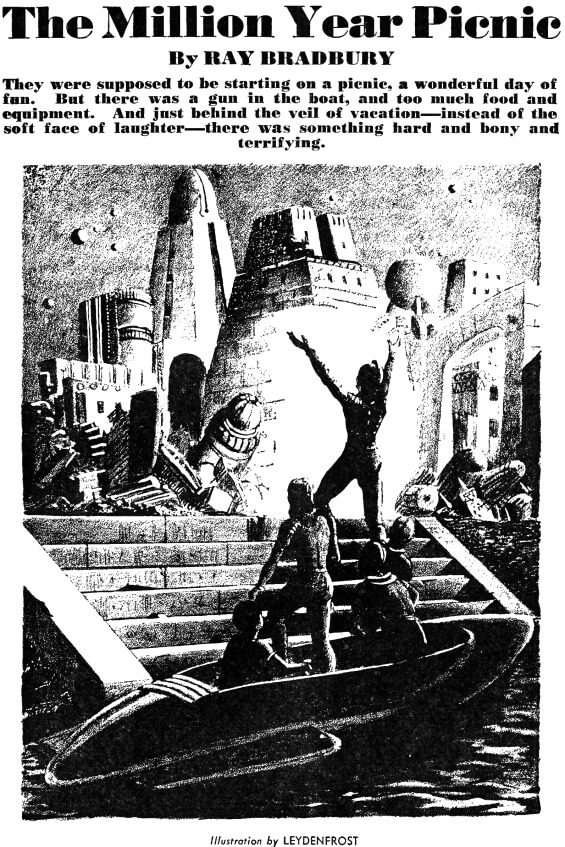
Posted by Jesse Willis
I thoroughly enjoyed this episode, as it picked through various strengths and weaknesses of a book I’ve been analysing as part of my PhD study of Bradbury’s work.
Eric and I have met a couple of times (Hi, Eric!) and his insights into THE MARTIAN CHRONICLES are always thought-provoking. I was particularly taken with his thoughts on the significance of music to the entire text. I’d picked up on LYRICS as being important, but I think I had tended to overlook music itself.
I just wanted to offer some information on the alterations to THE MARTIAN CHRONICLES, which you turned to near the end of the show. There was a suggestion that the 1950 US version of the book was Bradbury’s preferred text, and that other editions (including “The Fire Balloons”, for example) were the result of publishers tampering with it.
In fact, just a year after MC came out, the UK first edition (which was titled THE SILVER LOCUSTS) appeared, with different contents, and this was largely at Bradbury’s request. The key difference between MARTIAN CHRONICLES and SILVER LOCUSTS was the dropping of “Usher II” and the addition of “The Fire Balloons”.
The MARTIAN CHRONICLES has continued to be a fairly “unstable” text ever since, with a number of other variations in content, most of them decided by Bradbury himself. You will find that “Way in the Middle of the Air” comes and goes between different editions, as does “The Wilderness” and the previously mentioned “Usher II” and “The Fire Balloons”.
I’d also like to correct a misunderstanding that I heard in the show: “I, Mars” (also known as “Night Call, Collect”) was not altered to become “The Silent Towns”. It’s a completely separate story. Bradbury couldn’t find a way to fit “I, Mars” into his MC chronology, so left it out of the book. A similar thing happened with his other story “Dark They Were, And Golden Eyed” – it’s set on Mars, but the events just contradict the main flow of MC too much, so he had to leave it out.
Incidentally, “The Million-Year Picnic” was NOT always intended to be the final story in MC. The book RAY BRADBURY: THE LIFE OF FICTION (Kent State University Press, 2004) by Jonathan Eller and William Touponce reproduces Bradbury’s original table of contents for the book, and “Picnic” was at one stage going to make an earlier appearance.
Eller and Touponce’s book has a fascinating history of Bradbury’s text, and it well worth a look for anyone interested in the author’s intent. Of course, the text of MC needs to speak for itself, but we shouldn’t confuse our inferences about what RB meant with what he actually meant.
Sorry for the long comment, but you made such a fascinating show that I felt the need to respond. I look forward to more great podcasts.
One last thing: anyone interested in Bradbury might like to visit my website at http://www.bradburymedia.co.uk !
– Phil Nichols
A wonderful discussion — as usual…! Besides Jesse, I think Eric is one of my favorite guests. (Of course, many other regulars contribute their own thoughtful insights.)
That TV version with Rock Hudson was terrible. I love Darren McGavin (Kolchak: The Night Stalker), but here he was terribly over-acting.
There’s an ideal film (or limited cable series) production in my mind…
I wouldn’t worry about the timeline, the dates — or scientific inaccuracies of what we now, or for a long time, have known about Mars. It’s poetry and metaphor. Maybe have an opening title along the lines of, “In a different now, a story about Mars…”
I have no shame in supplementing my reading of classic works with reading the Cliff Notes or Monarch Notes (the latter is very good on The Martian Chronicles.) A late friend of mine would chastise me for this, but I didn’t use these texts as a “cheat,” lol, but for the historical and biographical and thematic discussions.
The Norton, “Critical Editions” series are more academic. (The one on Conrad’s, Heart of Darkness is most excellent. It even reproduces three pages of the original draft in Conrad’s own writing. (!) Such as “The horror, the horror,” page.)
I haven’t been able to find it online, but I distinctly recall a moving reading of There Will Come Soft Rains by Burgess Meredith.
I live under the flight-path of the Hollywood-Burbank Airport, and I have memories of being out on the playing field in Elementary School, and when a large airplane would fly overhead, eclipsing the sun, its large shadow would cast across the asphalt playground and grass of the baseball field. That always amazed me. And still, when a large passenger jet flies overhead, its shadow will run across the suburban homes, and you’ll see it outside — or even flicker outside your window.
…whenever this happens, I recall Rocket Summer… the effects of our flying craft on our environment. I’ll call this, “Airplane Eclipse.”
(The loud thunderous jet noise isn’t so poetically enjoyable, lol.)
Thanks again, Jesse for the thoughtful discussion, not to mention your entire website.
Thanks Steven! I really dig you’re going through our back catalogue – Eric’s hard to get, was hard to get for years – but I’ve got him weekly now for like 4 years with READING, SHORT AND DEEP :D